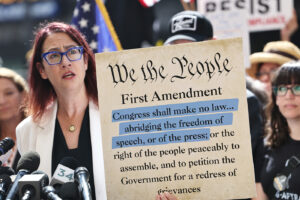October 30, 2023
You Have the Right to an Attorney, but It Might Cost You
By Peter Lucas
Approximately 40 states allow courts to charge for the use of a public defender, acting as an additional punishment for those who cannot afford to pay.

(Aluxum / Getty)
Joshua Sedgeman thought his court-appointed lawyer would be free. He was indigent after all, meaning his financial circumstances qualified him for public representation after he was arrested in 2015 for allegedly robbing a medical marijuana caregiver in Michigan. But in 2020, after a drawn-out trial and retrial process in which Sedgeman was convicted and sentenced to at least 20 years in prison, he was hit with his attorney bill: $21,070.
Public representation for indigent defendants is a right guaranteed by the Constitution according to the landmark Supreme Court ruling Gideon v. Wainwright. Despite the common perception of public defenders as free, approximately 40 states allow courts to charge indigent defendants for the use of a public defender or court-appointed counsel. Since 80 percent of defendants in the U.S. qualify for a court-appointed attorney, these fees are assessed frequently.
“I was very surprised that I was being charged—and especially the amount that I was charged for attorneys that I honestly didn’t even use,” Sedgeman told The Nation. He said that as part of the attorney fees, he was charged for investigators that he never met or spoke with.


